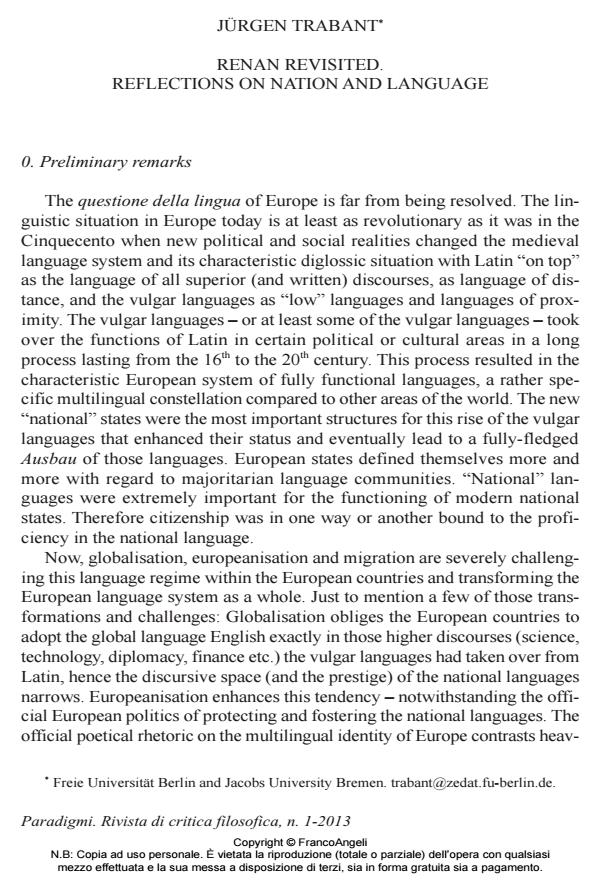Renan Revisited. Reflections on Nation and Language
Journal title PARADIGMI
Author/s Jurgen Trabant
Publishing Year 2013 Issue 2013/1
Language Italian Pages 23 P. 37-59 File size 201 KB
DOI 10.3280/PARA2013-001004
DOI is like a bar code for intellectual property: to have more infomation
click here
Below, you can see the article first page
If you want to buy this article in PDF format, you can do it, following the instructions to buy download credits

FrancoAngeli is member of Publishers International Linking Association, Inc (PILA), a not-for-profit association which run the CrossRef service enabling links to and from online scholarly content.
Why does Renan exclude language from his definition of the nation in his seminal speech What is a nation? (1882)? The article argues against that exclusion by showing that it is philosophically unnecessary and historically problematic. There is a strong French tradition, established by the language politics of the French Revolution, that links nation to language. According to the Jacobins, the nation, i.e. the new democratic sovereign, must have one language for communicative and cognitive reasons. This conviction remains the basis of language-political activities today and creates tensions in the actual questione della lingua in Europe.
Keywords: European multilingualism, French Revolution, Génie de la langue, Language politics, Nation, National language, Renan.
Jurgen Trabant, Renan revisited. Reflections on nation and language in "PARADIGMI" 1/2013, pp 37-59, DOI: 10.3280/PARA2013-001004